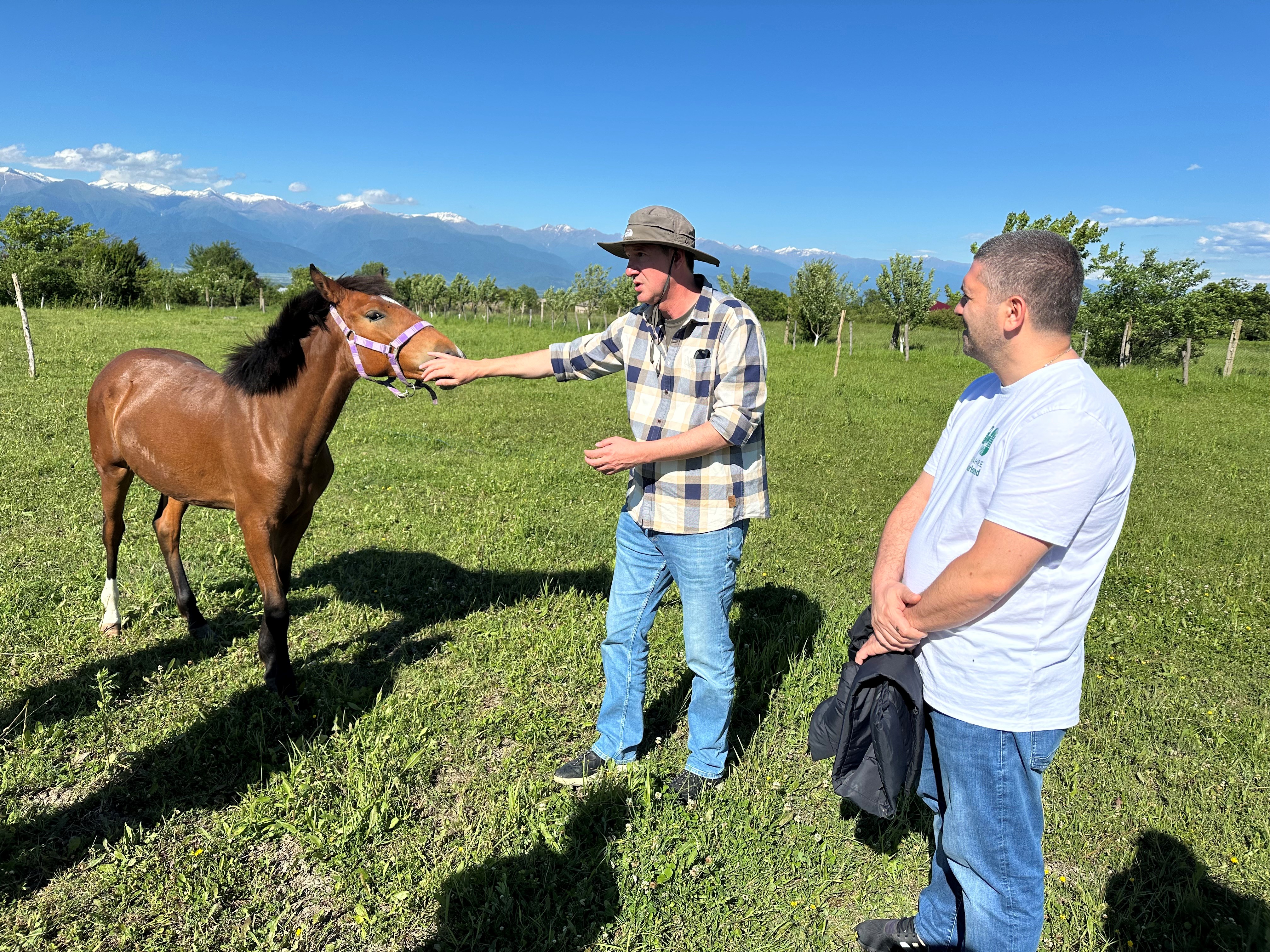From May 17 to 23, 2025, sequa conducted the Progress Review (PFK) of the Naturland project in Georgia. Since November 2022, Naturland has been active in Georgia within the framework of a BMO partnership, supporting five agricultural associations in advising their member farms on converting to organic farming. The cooperation focuses on guiding partner associations in the development and implementation of practical training programs, regular advisory services and additional support measures for their members, with the goal of promoting organic agriculture along selected value chains for tea, wine, spices, etc., and raising awareness for organic products within Georgia’s HORECA sector.
The progress review provided a nuanced picture of the current developments in Georgia’s organic agriculture sector. In viticulture, many Georgian producers are strategically focusing on organic wine to differentiate themselves from conventional suppliers on the European export market through quality and value-based pricing. Georgian tea also enjoys a good international reputation and is regarded by experts as high-quality. At the same time, the sector faces significant competitive pressure from major producers in India and China. A major barrier to export competitiveness lies in the high local procurement costs, primarily due to the labor-intensive, entirely manual harvesting process. Without at least partial mechanization of production, maintaining international competitiveness will remain a challenge.
Despite these structural difficulties, initial important contacts with German companies have been established in the tea sector, including at the Biofach trade fair in Nuremberg, where Georgian stakeholders had the opportunity to present their products and the project. This demonstrates existing market interest and highlights the potential for future trade partnerships.
Another key finding of the PFK was the significantly higher-than-expected demand for organically grown vegetables in Georgia. However, this is currently met with only a very limited supply, as production is almost entirely carried out by small, often unstructured farms. A central challenge going forward will be to develop practical certification solutions for these small-scale producers to enable access to the organic market while ensuring quality and traceability.
In the next phase of the project, the development of corresponding value chains in the vegetable sector will be further strengthened. In parallel, targeted information and marketing campaigns are planned for the HORECA sector to boost demand for locally produced organic products.
Positive developments were also observed at the association level: The participating agricultural associations have demonstrably benefited from the collaboration. For instance, the Georgian Farmers' Association, whose members are predominantly conventional farmers, has observed a growing interest in gradually transitioning to organic practices. The organic association Elkana has established a demonstration farm as part of the project implementation, which provides practical training to interested farmers in organic crop production and livestock farming.
The Georgian Tea Association also benefited from international exchange through its cooperation with Naturland: As part of the project, it was able for the first time to compare its own production processes with those of other countries and derive concrete improvement opportunities for its member farms. Existing focal areas such as expanding value chains for tea, wine, spices, and nuts will remain a core component of the project approach in the upcoming second phase.






